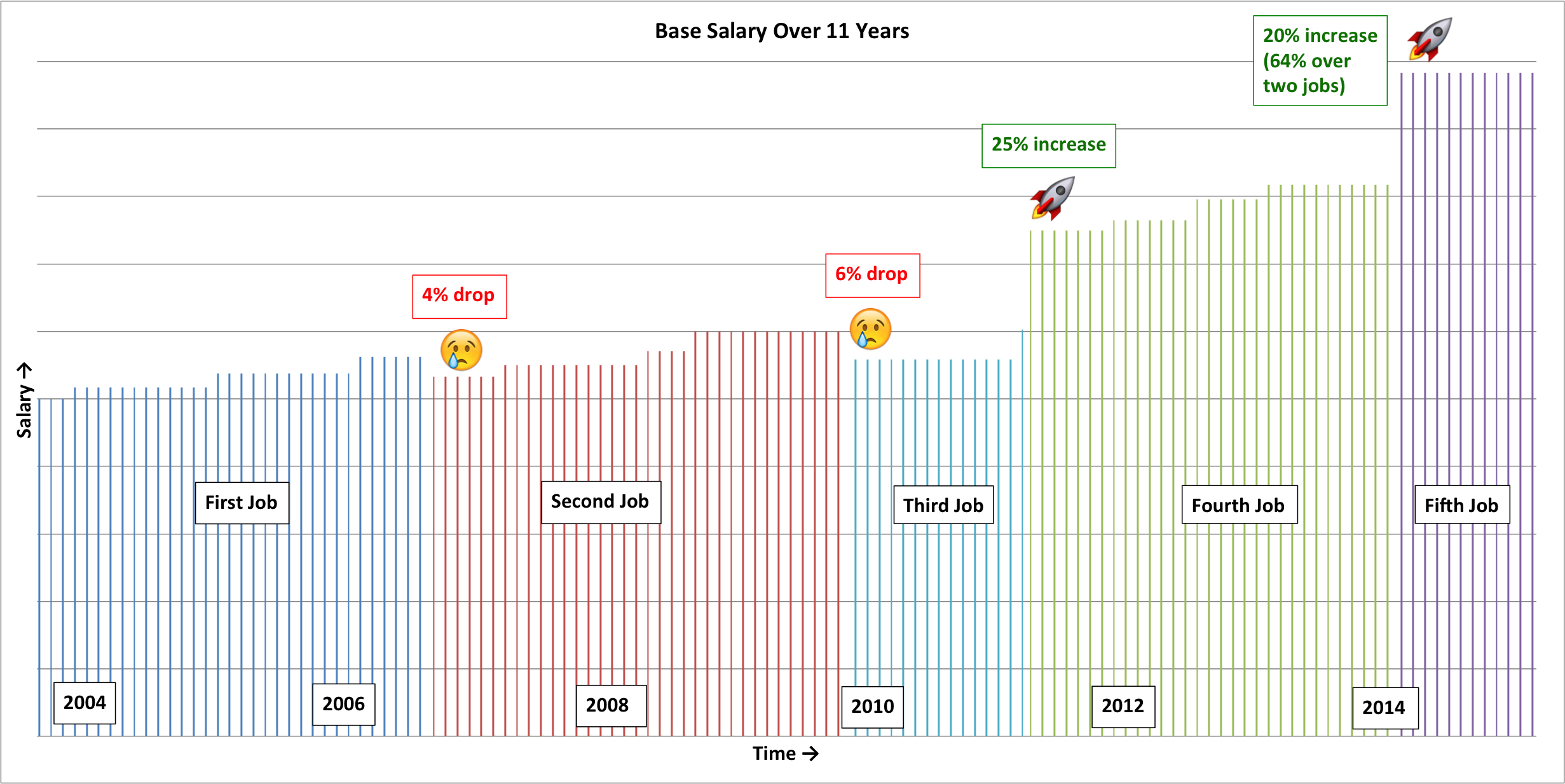I just finished my 2016 taxes.
Tax Day is one of the few times I look backwards to measure my progress. The two big questions I always ask myself are “Was this year better than last year?” and “What can I do to make next year even better?” I still do this every year now that I’m self-employed.
Earning more isn’t just about getting a bigger paycheck—it’s about measuring progress in the areas where you’re investing.
Here’s a graph of my income through the first 11 years of my career or so. You can see that I made solid progress over the long-term, but there were short-term dips where I actually moved backwards.

Base salary over the first 11 years of my career
Why did I do that?
Because I knew that making short-term sacrifices would lead to longer-term progress. Those little steps back were career changes where I moved from electrical engineering to consulting, or got my first opportunity to build a team.
This is a great illustration of the difference between strategy (my long-term plan) and tactics (the individual actions I took to execute on my long-term strategy).
Making progress requires a mix of tactics that increase your salary and increase your future potential to earn a higher salary. Sometimes, you should simply use smart tactics to ask for a raise. Sometimes, you should zoom out and take a strategic approach by looking for a position with more long-term career growth (like a managerial role, or a role that will enable you to add a new skill to your repertoire).
Here’s what this might look like for a phase of your career:
- Tactical: Start a new job and negotiate the best salary possible (much higher salary)
- Strategic: Learn the ropes and begin exceeding expectations (slightly higher salary)
- Strategic: Look for opportunities to acquire new skills (higher potential, salary may be flat or even down)
- Tactical: Ask for a promotion with a raise to compensate you for your new skills (higher salary)
- Strategic: If you start feeling that you can’t make steady progress at your current job, you might find a new job and start that cycle over (much higher salary, much higher potential)
Strategy and tactics. Of course, most of those steps are a mix of strategy and tactics, but you can see that each step leans pretty heavily one way or the other.
The most important thing is that you have an overall career strategy so that you can deploy the right tactics at the right time to execute on your strategy.
My book Fearless Salary Negotiation is jam-packed with valuable tactics you can use to increase your salary throughout your career. Learn how to get your next raise or promotion, how to ace your job interviews, and how to negotiate a higher salary. I also offer 1-on-1 strategy sessions where we’ll dial in your long-term career strategy.
>> Click here to learn more about Fearless Salary Negotiation